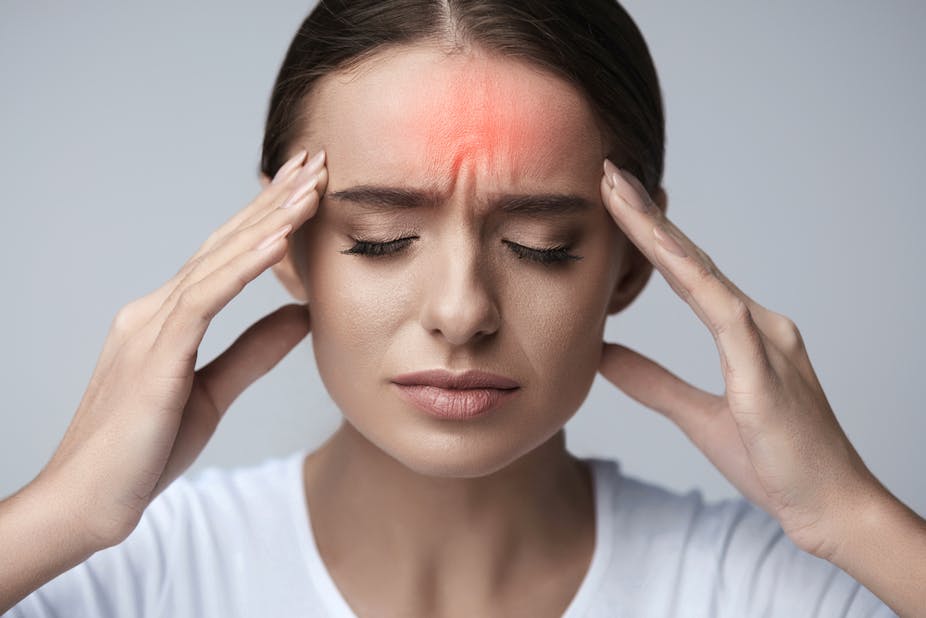
Understanding High Blood Pressure
First things first, what exactly is high blood pressure? Well, it's a condition where the force of blood against the walls of your arteries is consistently too high. It's measured using two numbers: systolic pressure (the top number) and diastolic pressure (the bottom number). A reading of 120/80 mmHg is considered normal, but when these numbers consistently rise above that range, it's time to take notice.
Acute Symptoms and Measures
In some cases, high blood pressure can present acute symptoms that require immediate attention. These may include:
- Severe: If you suddenly experience intense headaches, especially in the back of your head, it could be a sign of a hypertensive crisis. Seek medical help immediately. Severe headaches can occur when your blood pressure rises to dangerously high levels. This can be accompanied by a feeling of pressure or throbbing in the head. If you experience such symptoms, it's important not to ignore them. Contact emergency services or visit the nearest hospital to get prompt medical attention. High blood pressure emergencies require immediate intervention to prevent complications.

- Chest pain: Chest pain or tightness can indicate that your heart is struggling due to increased blood pressure. Don't ignore it—seek medical assistance promptly. Chest pain associated with high blood pressure can be a sign of an underlying heart condition. It may feel like a squeezing or pressure sensation in the chest, and it's crucial not to dismiss it as mere indigestion or muscle pain. Chest pain should never be taken lightly, as it could be a symptom of a heart attack or angina. Seek medical help right away to rule out any serious cardiac issues.
- Shortness of breath: If you find it difficult to catch your breath even during light physical activity, it could be due to high blood pressure affecting your heart and lungs. Get medical help right away. High blood pressure can put an extra strain on your heart, making it difficult for it to pump blood efficiently. This can lead to shortness of breath, even with minimal exertion. If you notice persistent breathlessness or find yourself struggling to breathe, it's important to seek immediate medical attention. It could indicate that your blood pressure is causing complications in your cardiovascular system.

In acute situations, it's essential to follow these measures
- Seek emergency medical care: Don't hesitate to call emergency services or visit the nearest hospital if you experience severe symptoms. High blood pressure emergencies require immediate attention. Healthcare professionals will be able to assess your condition, provide appropriate treatment, and monitor your blood pressure to ensure it stabilizes.
- Take prescribed medications: If you have been diagnosed with high blood pressure and prescribed medication, ensure you take it as directed by your healthcare professional. These medications are designed to help regulate blood pressure and prevent complications. It's important to follow the prescribed dosage and frequency to maintain your blood pressure within a healthy range.
Did you know?
High blood pressure affects nearly one in three adults worldwide.
Chronic Management and Lifestyle Changes
For those with chronic high blood pressure, managing the condition becomes a long-term commitment. Here are some effective lifestyle changes to consider:
- Adopt a heart-healthy diet: Embrace a diet rich in fruits, vegetables, whole grains, lean proteins, and low-fat dairy products. Limit your intake of sodium, saturated fats, and added sugars. Don't forget the importance of portion control. A healthy diet plays a crucial role in managing high blood pressure. Incorporate foods that are rich in nutrients, including potassium, magnesium, and fiber. These can help regulate blood pressure levels and support overall cardiovascular health. Avoid processed and high-sodium foods, as excessive salt intake can contribute to high blood pressure. Opt for fresh, whole foods and cook meals at home as much as possible to have better control over your ingredients and sodium content.

- Get moving: Regular physical activity can do wonders for your blood pressure. Aim for at least 150 minutes of moderate-intensity aerobic exercise each week, along with strength training exercises twice a week. Consult your healthcare professional before starting any exercise regimen. Engaging in regular physical activity is a fantastic way to manage high blood pressure. Exercise helps strengthen your heart, improves blood circulation, and promotes overall cardiovascular health. Aim for activities you enjoy, such as brisk walking, swimming, cycling, or dancing. Start gradually if you're new to exercise and gradually increase intensity over time. Consult with your healthcare professional to determine the most suitable exercise routine for your condition and any precautions you should take.

- Shed those extra pounds: Losing weight can significantly reduce blood pressure. Aim for gradual, sustainable weight loss through a combination of healthy eating and regular physical activity. Excess body weight can contribute to high blood pressure. Losing even a modest amount of weight can have a positive impact on your blood pressure readings. Focus on adopting a balanced diet and increasing your physical activity levels to create a calorie deficit. Remember, sustainable weight loss takes time, so be patient and persistent in your efforts. Seek guidance from a registered dietitian or healthcare professional who can provide personalized advice and support.
- Manage stress: Chronic stress can contribute to high blood pressure. Incorporate stress-management techniques into your daily routine, such as meditation, deep breathing exercises, yoga, or engaging in hobbies you enjoy. Stress has a direct impact on blood pressure levels. When you're stressed, your body releases hormones that can cause your blood vessels to constrict and your heart rate to rise, leading to an increase in blood pressure. It's crucial to find healthy ways to manage stress. Explore relaxation techniques that work for you, such as mindfulness meditation, deep breathing exercises, or engaging in activities that help you unwind and de-stress. Additionally, prioritize self-care and make time for activities you enjoy, whether it's reading, listening to music, spending time in nature, or pursuing hobbies.
- Limit alcohol and quit smoking: Excessive alcohol consumption and smoking can raise your blood pressure and increase the risk of cardiovascular complications. Aim to moderate your alcohol intake and quit smoking altogether. Alcohol and smoking have detrimental effects on blood pressure and overall cardiovascular health. Excessive alcohol consumption can lead to an increase in blood pressure levels.

If you choose to drink alcohol, do so in moderation, which means up to one drink per day for women and up to two drinks per day for men. On the other hand, smoking cigarettes releases harmful chemicals into your bloodstream, causing your blood vessels to constrict and increasing the risk of cardiovascular diseases. Quitting smoking is one of the best decisions you can make for your overall health and blood pressure management. Seek support from healthcare professionals, support groups, or smoking cessation programs to help you quit successfully.
Conclusion
Living with high blood pressure doesn't mean your life is doomed. By staying vigilant, making conscious lifestyle choices, and seeking appropriate medical care, you can successfully manage this sneaky intruder. Remember, small steps lead to big changes, so start implementing these measures today to safeguard your heart and overall well-being.
Frequently Asked Questions (FAQs)
1. What are the risk factors for high blood pressure?
Ans: Risk factors for high blood pressure include age, family history, unhealthy diet, physical inactivity, obesity, tobacco use, excessive alcohol consumption, stress, and certain medical conditions like diabetes or kidney disease.
2. What are the potential complications of untreated high blood pressure?
Ans: Untreated high blood pressure can lead to serious health complications such as heart disease, stroke, kidney damage, vision loss, and an increased risk of heart attack or heart failure.
3. Can high blood pressure be managed without medication?
Ans: In some cases, lifestyle modifications such as adopting a healthy diet, regular exercise, weight management, stress reduction, and limiting alcohol and sodium intake can help manage high blood pressure. However, medication may be necessary for individuals with persistently high blood pressure or those at high risk of complications.
4. What is considered a healthy blood pressure range?
Ans: A healthy blood pressure reading is typically around 120/80 mmHg. The top number (systolic pressure) represents the pressure in the arteries when the heart beats, while the bottom number (diastolic pressure) represents the pressure when the heart is at rest.
5. How often should I check my blood pressure?
Ans: It's recommended to have your blood pressure checked at least once every two years if your readings are consistently normal. However, if you have high blood pressure or other risk factors, regular monitoring is essential. Your healthcare professional can provide specific guidance on how often you should check your blood pressure based on your situation.
